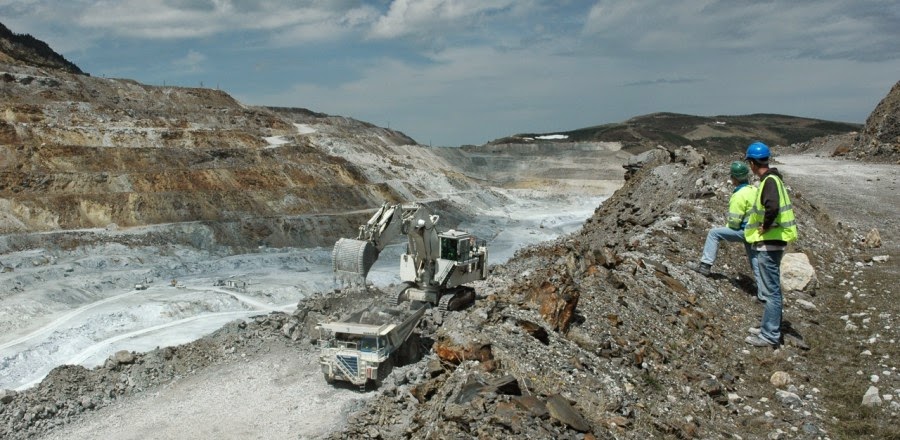This is not the technological age. We may be seduced into believing this by the tiny devices that increasingly rule our lives, and the rooms of books, records, photo albums and letters that have vanished into electronically accessed clouds in the ephemeral realms of cyberspace.
Even the names that dominate our days--Google, Yahoo, Apple, Twitter, Facebook, Amazon--suggest the whimsical worlds of make believe. But this insubstantial pageant masks the hard and increasingly terrible truth: we still live in the Industrial Age.
Technology may have revolutionized our lives, and may well change our circumstances even more in the near future. But we are too easily deceived by the bright screens and images at the speed of a fingertip, and by all the giddy power that fits in the palm of your hand. For despite its seemingly inconsequential size and weight, this device is manufactured out of materials mined and constructed in huge industrial operations, and gathered together from many distant places.
There is no "cloud." There are only miles of servers, requiring gross and exotic materials, vast quantities of electrical power which in turn requires vast quantities of fuels. And that's true of all other new technologies, in medicine, communication, and industry itself.
Technology is a subset of the industrial age, because without the systems of that industrial age, there would be no technological marvels in your hand.
For a generation or more we in the US have been told that we live in a service economy, dominated by communications--that manufacturing and mining are occupations of the past. The manufacturing and mining, the industrial byproducts of deadly chemicals, poisoned land, water and air as well as cheap labor and pitiless human health risks, may mostly exist now in distant and hidden places, but their scale is ever more immense and growing.
Industrialization in those parts of the world where it did not exist means that industrialization is spreading and accelerating to far larger sizes and impact than the "Machine Age" of textbooks and museum shows. 3-D printing and the Internet of Things do little if anything to change this fact.
In fact the Industrial Age has spread beyond the processes of manufacturing things to the industrialization of the food supply--crop farming (with heavy use of GMOs and pesticides), livestock (with heavy use of antibiotics, engineered feeds and chemicals) and fishing (with the collateral damage of other species and habitats.)
Though attention has turned away from it, clearcutting and other industrial timber cutting continues.
The Industrial Age is vast and insatiable. Capitalism's addiction to relentless growth insists on this. It is also increasingly fragile. Fossil fuels are harder to find and extract, requiring more complex machinery and greater damage to the natural world, both in remote and biological sensitive locations, and dangerously near human communities. The metals and minerals that computers need are especially vulnerable, as some vital ones come from few countries, which may be in strife or controlled by criminals.
Industrial farming is depleting soil that only thousands of years could nourish. Industrial logging continues to destroy all that supports the life of forests, streams, wildlife and ultimately people.
Garbage and waste is itself a huge industry, poisoning land and now immense areas of the oceans, which among other things, regulate global weather.
Transportation is perhaps the defining industry of our age, so comparatively cheap that much of our material goods come from afar, including our food. Transport that uses fuels, power and packing materials in massive quantities.
Disruption of transportation is now easily the most consequential of industrial processes. Disruption of computerized communication may overall be worse in the short term, but its effect on transport could be deadly. With our lives so dependent on multiple industrial processes far away, they are stunningly fragile. How many of us can depend on even locally produced food, once the supermarket shelves and the cupboards are bare?
It may be comforting to think it's the technology age--it sounds smarter, cleaner, smaller. The reality is larger, dirtier, more violent and ultimately horrifying in its abuse and insanity. It is important to recognize that our shiny technologies and the culture's obsessions with them may blind us to realities that need to be addressed. Both to our fragile dependence and to the effects of industrialization on our planet and its ability to sustain life.
.jpg)





















